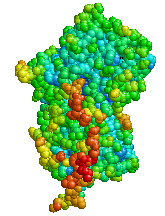Cause:
Alpha-1 Antitrypsin Deficiency (AATD) is a genetic disorder caused by mutations in the SERPINA1 gene, which leads to insufficient production or abnormal functioning of alpha-1 antitrypsin (AAT) protein. This protein plays a crucial role in protecting the lungs from damage caused by enzymes released by white blood cells.
Signs and Symptoms:
The signs and symptoms of AATD vary widely among affected individuals. In some cases, individuals may experience no symptoms, while others may develop respiratory problems such as shortness of breath, wheezing, chronic cough, and recurrent respiratory infections. AATD can also lead to liver damage, resulting in jaundice, abdominal pain, and abnormal liver function tests.
Diagnosis:
Diagnosing AATD involves blood tests to measure the levels and activity of alpha-1 antitrypsin in the blood. Genetic testing may also be conducted to identify specific mutations in the SERPINA1 gene.
Treatment:
Treatment for AATD aims to manage symptoms, prevent complications, and slow the progression of lung and liver disease. Supplemental AAT therapy, known as augmentation therapy, involves infusions of purified AAT protein to increase protective levels in the blood and lungs. This therapy can help reduce the risk of lung function decline and respiratory infections. Additionally, medications may be prescribed to manage symptoms such as bronchodilators for airflow obstruction and antibiotics for respiratory infections. In severe cases of liver disease, liver transplantation may be necessary.
Prevention:
Since AATD is an inherited condition, there is no way to prevent it. However, genetic counseling and testing can help individuals understand their risk of passing the condition to their children or developing related health problems. Avoiding smoking and minimizing exposure to environmental pollutants can also help protect lung health in individuals with AATD.
Supportive Care:
In addition to medical treatment, individuals with AATD can benefit from supportive care measures such as pulmonary rehabilitation, which includes exercise training, education, and psychosocial support to improve lung function and overall quality of life. Regular monitoring by healthcare providers is essential to detect and manage any complications associated with AATD.
In conclusion, Alpha-1 Antitrypsin Deficiency is a genetic disorder that can affect the lungs and liver, leading to respiratory and liver-related symptoms. While there is no cure for AATD, early diagnosis, appropriate treatment, and supportive care can help individuals manage the condition and maintain a good quality of life.

